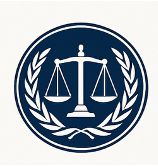

As emerging technologies increasingly influence global economics, security, and human rights, international organizations have become indispensable in shaping the legal frameworks that govern technological development and deployment. This article investigates how bodies such as the United Nations, OECD, European Union, ITU, and UNESCO contribute to global technology law by setting standards, harmonizing regulations, and fostering responsible innovation. It examines their influence in fields like artificial intelligence, data protection, and cybersecurity, highlighting landmark initiatives such as the EU AI Act, the OECD AI Principles, and UNESCO’s Ethics of AI Recommendation.
By providing platforms for consensus-building, capacity-building for developing countries, and tools for regulatory coordination, these institutions reduce legal fragmentation and address challenges posed by rapid digital transformation. The article also explores obstacles—like uneven enforcement and geopolitical divergence—that threaten effective global tech governance. It concludes that multilateral, adaptive, and inclusive legal development through international organizations is essential for a fair and rights-respecting digital future.
Introduction
In an era marked by exponential technological advancement, international organizations have become central in shaping how technology is regulated, harmonizing divergent national laws, and fostering innovation while protecting fundamental rights. As digital transformation and artificial intelligence (AI) reach into every facet of society, the development and implementation of robust, globally relevant tech laws have become critical. This article explores the multifaceted roles of international organizations in developing tech law, with a focus on their approaches, achievements, and ongoing challenges through 2025.
Why International Organizations Matter in Tech Law
International organizations—such as the United Nations (UN), Organisation for Economic Co-operation and Development (OECD), European Union (EU), International Telecommunication Union (ITU), UNESCO, and the Council of Europe—play pivotal roles in tech law development by:
These organizations bridge regulatory gaps created by the transnational nature of technology and respond to rapid innovation outpacing national lawmaking[1][2].
Key Roles and Functions
International organizations catalyze the creation of “soft law” (principles, codes of practice, recommendations) and “hard law” (binding conventions, treaties) for new technologies:
Case Studies of Impact
|
Organization |
Key Initiative |
Reach |
|
OECD |
AI Principles; AI Policy Observatory |
Global (G20, OECD members, 40+ countries) |
|
EU |
AI Act (2024); Ethics Guidelines; AI Office |
27 EU members, standards influencing G7/G20 |
|
UNESCO |
Ethics of AI Recommendation |
Global (193 member countries) |
|
Council of Europe |
Feasibility Study for Treaty on AI and Human Rights |
46 European countries |
|
United Nations |
Roadmap for Digital Cooperation; AI Advisory Body |
Global |
These efforts have given rise to international “soft law” on AI, as well as the world’s first “hard law” binding act (EU AI Act) for high-risk AI systems[3][2][4].
Graph: Expansion of International Tech Law Initiatives (2015–2025)
[image:1]
A line chart showing major international legal and policy initiatives in tech law, including the proliferation of AI/tech agreements and frameworks by international organizations and the growing number of countries adopting tech law guidelines.
Opportunities and Challenges
Opportunities
Challenges
Infographic: The International Tech Law Development Ecosystem
[image:2]
An infographic illustrating the overlapping circles of international organizations, national regulators, industry, civil society, and technical bodies cooperating and occasionally competing to shape global tech law.
Conclusion
The future of technology law is inextricably linked with the leadership, collaboration, and standard-setting work of international organizations. Their influence ensures that technology—especially transformative fields like AI, data, and cybersecurity—is developed, deployed, and governed with attention to human rights, security, and inclusive benefit. As new governance challenges arise, continued expansion of international, multistakeholder, and flexible legal frameworks will remain essential for balancing innovation, risk, and justice in the digital age.
“International organizations are not only forums for negotiation; they are engines for building the global consensus, standards, and rules that define the future of technology and rights.”
References:
